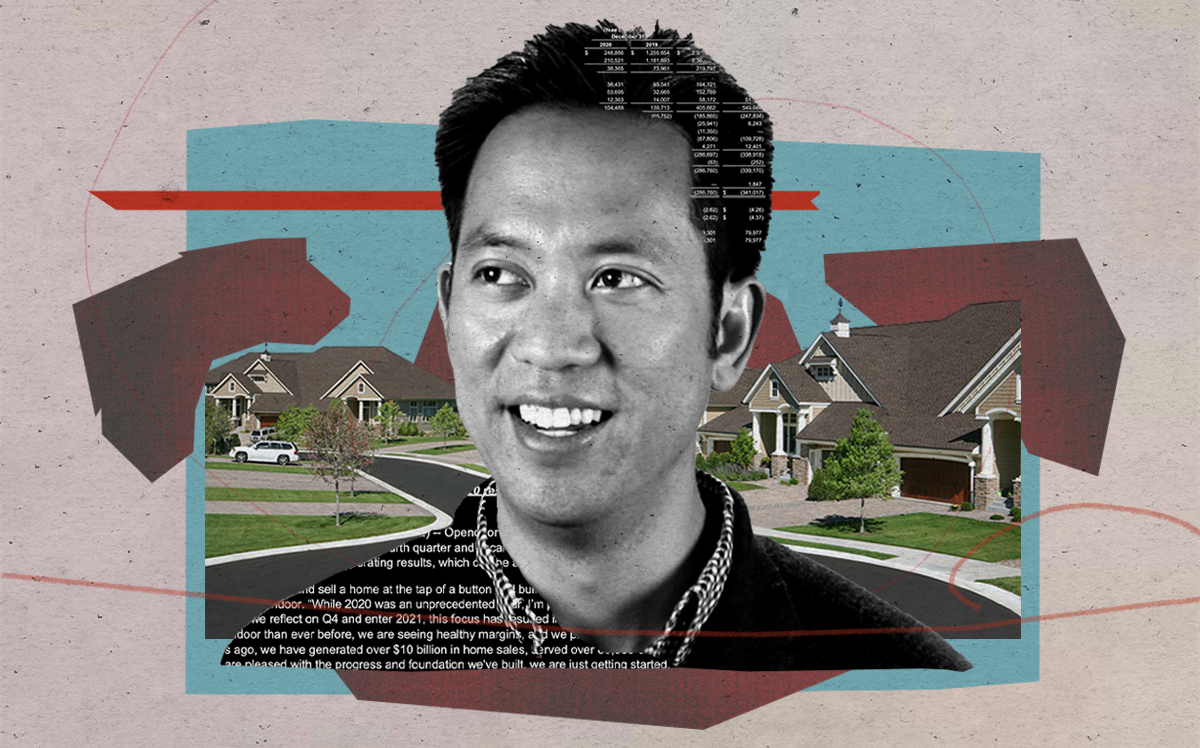 Opendoor valuation soars to $18B ahead of IPO
Opendoor valuation soars to $18B ahead of IPO
Trending
Opendoor revenue plunged 45% in 2020
iBuyer’s net loss was $287M as CEO acknowledged pandemic’s toll

In its first earnings as a public company, Opendoor reported a 45 percent drop in revenue attributed to its pause in home-buying in the early months of the pandemic.
The iBuyer generated $2.6 billion in revenue last year, compared to $4.7 billion in 2019. The company reported a net loss of $286.8 million, down from $339.2 million a year earlier.
Even as it sought to rebuild its inventory during the fourth quarter, it had few homes to sell and quarterly revenue was $248.9 million, down 80 percent from $1.3 billion in 2019. Opendoor’s net loss for the fourth quarter was $87.8 million compared to $91.7 million.
During its earnings call Thursday, CEO Eric Wu acknowledged the toll the pandemic took on its home-buying operation. Opendoor sold off an estimated $1 billion worth of inventory last year amid uncertainty in the market. It has since rebuilt its inventory to 1,827 homes valued at $466 million.
Notwithstanding the turbulence of 2020, Wu said Opendoor is poised to benefit from the U.S. housing boom and adoption of digital home-buying tools. “We’ve been building Opendoor behind the scenes for this moment,” he said. “The adoption of digital products is rising sharply; real estate is no exception.”
Read more
 Opendoor valuation soars to $18B ahead of IPO
Opendoor valuation soars to $18B ahead of IPO
 Opendoor confirms $4.8 billion IPO
Opendoor confirms $4.8 billion IPO
Founded in 2014, Opendoor is the leader in the nascent-but-growing iBuying sector. It makes cash offers for homes, providing sellers the speed and certainty of a transaction for a fee. Competitors in the space include Zillow, Offerpad and Redfin, among others.
Last spring, nearly all of the major iBuyers suspended home-buying, citing the difficulty in valuing homes during the early part of the pandemic. U.S. home sales have since rebounded, and 2020 home sales hit a 14-year high, according to the National Association of Realtors.
Opendoor went public in December after merging with a blank-check firm backed by investor Chamath Palihapitiya. The IPO valued Opendoor at $4.7 billion and generated net proceeds of $970 million. Opendoor later raised $860 million in follow-on equity.
The stock has bounced around over the past few months, however. Shares closed at $31.25 on Dec. 21, its first day of trading. The stock hit a high of $38.26 on Feb. 11. But the price closed at $24.39 per share on Thursday, down 15 percent from a day earlier.
During the earnings call, Opendoor said it plans to expand to 42 markets — twice what it has now — including six new markets during the first quarter of the year.
In addition to working with sellers, Opendoor recently launched a “cash offer” program that allows buyers to make cash offers backed by Opendoor. “We know the market is competitive,” Wu said. “This feature, and more to come, demonstrates our ability to innovate quickly based on what we’re seeing in the market.”
Asked during the call about Opendoor’s competition with Zillow, Wu replied that he’s focused on building a new sector.




